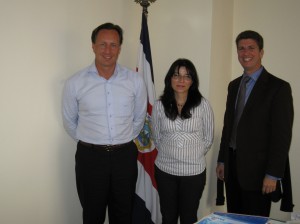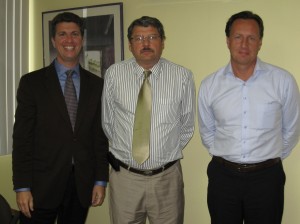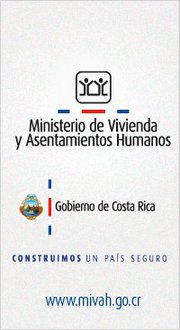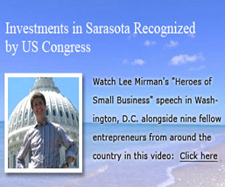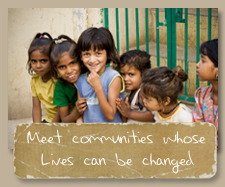Team Fuqua Alumni Magazine.
Lee and Lisa Mirman—both Daytime MBA graduates—are developing affordable housing for the working poor in Costa Rica.
By Tim Candon — This article was originally published in the Team Fuqua alumni magazine.
October 19, 2011

Lisa and Lee Mirman
Not only did Lee and Lisa Mirman weather the real estate bubble’s burst, they thrived afterwards, and their success has enabled them to switch gears and focus on a very different constituency — the poor in Costa Rica.
The Mirmans — both Daytime MBA graduates — are passionate about venture philanthropy, especially in Costa Rica. Since her mother is originally from the country, Lisa considers it her second home. The couple establishedInvestments in Costa Rica, which works in conjunction with the Costa Rican government and the Peace Corps to develop and deliver affordable housing.
“The standard of living there is low, but the people’s ability to build their own community is very moving,” says Lisa(Daytime MBA ’96). “It’s very motivating for us. They just need a bit of financial support to better their lot in life.”
The homes that the Mirmans construct are modest, about 500 square feet, with two bedrooms and one bathroom. In Colorado, Costa Rica, they are building a neighborhood of 103 homes. The Mirmans aren’t just looking to build houses and move on, though. Each home is the starting point for a new community.
To achieve that, they partnered with the Peace Corps, which delivers training, support, education, and community assessments for the new home owners. Programs are then implemented to help residents become self-sufficient.
“Costa Ricans are considered some of the happiest people in the world,” Lisa says. “They are also very receptive to education. They welcome volunteers who will help them learn English, job skills, etc. to take care of their families. It’s really humbling.”
The couple’s work in Costa Rica is possible due to their successful boutique real estate brokerage in Florida called Investments in Sarasota, which specializes in selling luxury, waterfront homes. The Mirmans say they avoided the effects of the real estate downturn by building trust with their clients. Lee (Daytime MBA ’95) explains that during the boom years, buyers were only looking for a clerk to execute a transaction. Afterwards, luxury buyers placed a premium on expert analysis to determine the validity of investments and to navigate the buying process, which became more complicated due to increased regulations.
“People we’re working with are very affluent, and they appreciate Lee’s ability to analyze,” Lisa says. “More fundamental than that is integrity. If something wasn’t a good investment, he’d tell people. He has clients with lots of loyalty because of that.”
About three years ago, the Mirmans developed an interest in venture philanthropy and began investigating emerging markets. One area that drew their interest was global, social housing. As they dug in more, they learned through the United Nations that governments in emerging countries find it less expensive to give away homes than to deal with the social problems emerging from urban slums, including increased health care costs, public safety and national security issues. In many of these areas, disease and violence are also a serious concern, and the disillusionment of people living in such conditions creates a fertile recruiting ground for drug cartels and terrorist organizations. At the same time, many living in these bleak conditions realize the way out, and that’s where the Mirmans come in.
“People who are living in these environments are banding together and trying to do things to create a community even though they don’t have a home yet. They want to instill responsibility, even in small things. They’ll put in the sweat equity to demonstrate they’ll be responsible after they receive a home,” says Lee.
In order to merely scratch the surface of the need for social housing, many countries, like Costa Rica, need additional cooperation and investment from the private sector. According to the government, Costa Rica has invested more than $700 million in social housing during the last 20 years. While the country is relatively small (4.5 million inhabitants), its social housing needs are a microcosm for the rest of the world. While Lee says that 46,000 units are needed in Costa Rica, it’s estimated more than 1 billion people live in urban slums worldwide.
“The ultimate goal as we build upon our success in Costa Rica is to work with governments throughout Latin America and to do this in multiple countries simultaneously,” Lee says. “With larger populations, there are bigger demands. In Brazil, it’s in the millions.”
